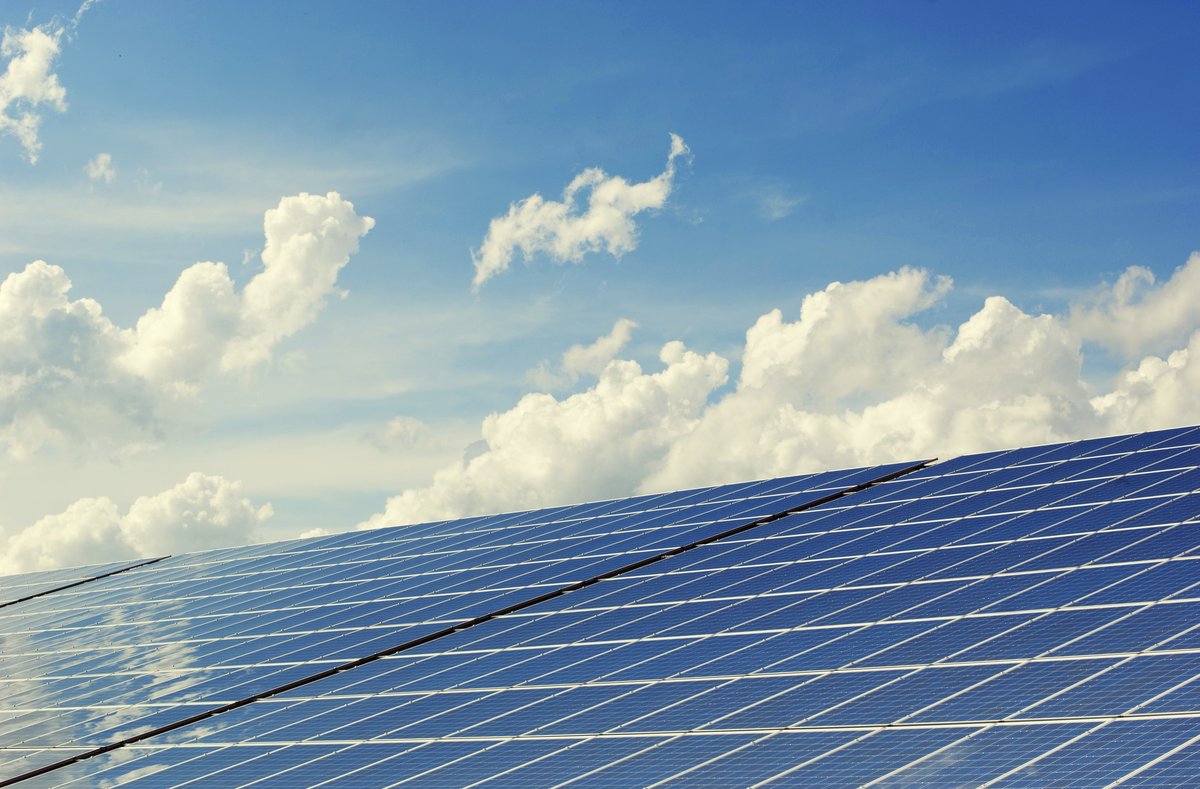As the world transitions towards sustainable energy sources, solar power has emerged as a leading contender in the race to reduce carbon emissions and combat climate change. For residents and businesses in the United Kingdom, utilising the sun’s power is eco-friendly and economically advantageous. One of the critical factors when considering solar panels is their efficiency, as it directly impacts the amount of energy you can generate from your system. In this blog post, we’ll delve into the topic of solar panel efficiency to answer the question: “Which solar panels are the most efficient in the UK?”
Solar Panel Efficiency
Solar panel efficiency refers to the ability of a photovoltaic (PV) panel to convert sunlight into electricity. The higher the efficiency, the more electricity a panel can generate for a given amount of sunlight. Solar panel efficiency is vital if you are looking to maximise energy production while making the most of your available space. However, it’s essential to remember that the efficiency of a solar panel isn’t the sole factor to consider when choosing the right system for your needs. Other factors include cost, durability, and the local climate. In the UK, where sunlight is less abundant than in other parts of the world, the focus is on balancing efficiency with cost-effectiveness.
Monocrystalline vs. Polycrystalline: Which is More Efficient?
When comparing the efficiency of solar panels, it’s essential to consider the two most common types: monocrystalline and polycrystalline panels. Monocrystalline panels (the black-coloured ones you see on rooftops) are often praised for their high efficiency due to their manufacturing process, which involves using a single crystal structure. This results in a more uniform appearance and higher energy conversion rates, making monocrystalline panels an attractive choice in regions with limited sunlight, such as the UK. These panels tend to perform well even in low-light conditions and can be a valuable investment for those looking to maximise power output from a limited rooftop space.
On the other hand, polycrystalline panels (the blue ones you usually see on rooftops) are known for their cost-effectiveness and widespread availability. While they are generally less efficient than monocrystalline panels, their affordability and decent performance make them popular for many homeowners. Polycrystalline panels can still provide a good return on investment and are suitable for installations where space is not a limitation, allowing you to install more panels to compensate for their slightly lower efficiency.
Both monocrystalline and polycrystalline panels have their advantages, and the choice between them depends on your specific needs, budget, and available space. Monocrystalline panels may be considered the most efficient regarding raw energy conversion. Still, polycrystalline panels can offer a cost-effective solution for those looking to harness solar power in the UK’s diverse climate. Consulting with a local solar expert can help you determine which type of panel best fits your unique circumstances.
Factors Affecting Solar Panel Efficiency
While high-efficiency solar panels exist, their performance is influenced by several factors:
1. Orientation and Angle: The direction your panels face and the angle at which they are installed can significantly impact efficiency. In the UK, south-facing panels with an inclination of around 30-40 degrees tend to perform best.
2. Shading: Shading from trees, nearby buildings, or other obstructions can reduce the efficiency of solar panels. Using shade analysis tools during the installation process can help optimise panel placement.
3. Weather Condition: The UK’s climate is known for its cloudy and rainy days, which can reduce the amount of sunlight available for energy generation. High-efficiency panels can partially offset this issue but may come at a higher cost.
4. Quality of Installation: The quality of the installation and the components used, such as inverters and mounting systems, also affect overall system efficiency.
Choosing the Right Solar Panels for You
Selecting the most efficient solar panels involves a careful balance of factors. Here are some tips to guide your decision:
1. Consult a Professional: Working with a local solar energy provider or installer who can assess your situation and recommend the most suitable panels for your location is advisable.
2. Consider Budget and ROI: While high-efficiency panels may perform better, their initial cost can be higher. Calculate the return on investment (ROI) based on your energy consumption and local incentives to find the right balance.
3. Check Warranties: Investigate the warranties and longevity of the panels, as a longer lifespan can compensate for lower initial efficiency.
Conclusion
Solar panel efficiency is critical when utilising solar panels for renewable energy generation. While high-efficiency panels are available from reputable manufacturers, the UK’s unique climate and geographic factors mean that efficiency alone is not the sole determinant for selecting the right solar panels. To make an informed choice, it’s essential to consult with professionals and consider your budget.
By carefully assessing your individual needs and considering the local factors affecting efficiency, you can make a well-informed decision on which solar panels will shine the brightest on your rooftop.
Let’s Help You
Are you still feeling overwhelmed and have many more questions about solar panels? Call us at 01482 230 422, and one of our friendly solar specialists will gladly help you! We even offer a FREE quote to determine how many solar panels you will need.
